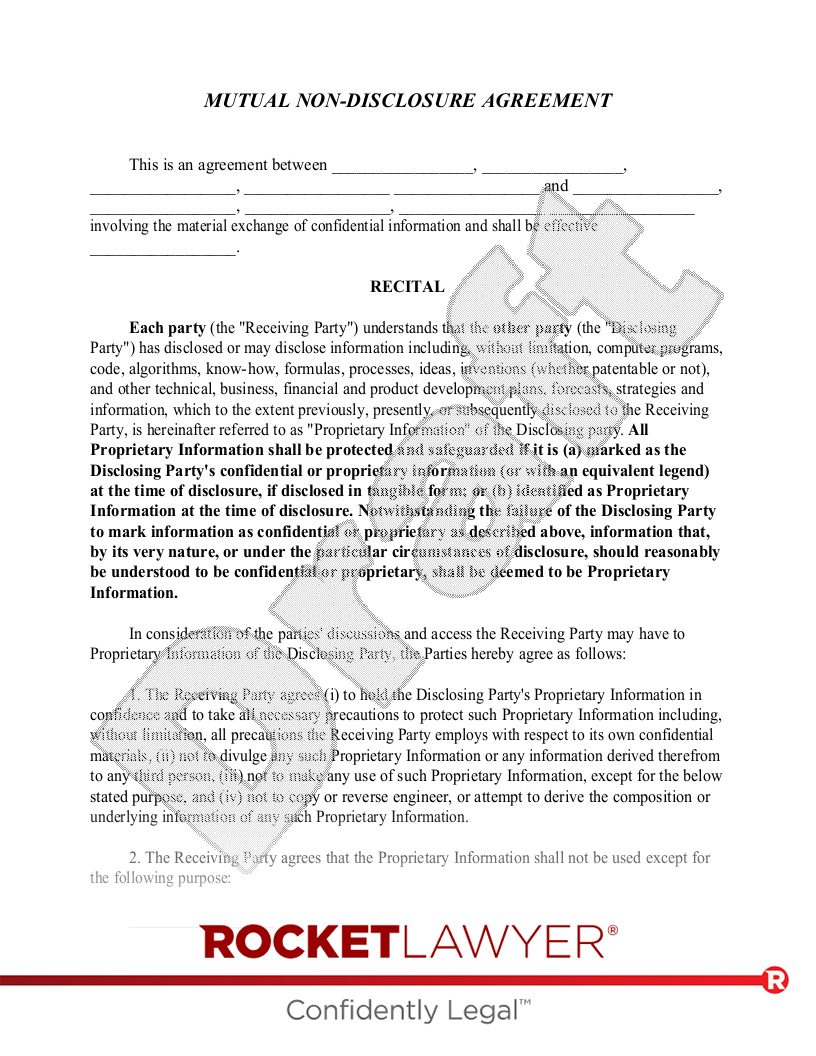Start a nonprofit


Tell us about your business
We do the paperwork for you
Stay protected
| Managing your business | LLC | S-corp | C-corp | Nonprofit | Sole proprietorship |
|---|---|---|---|---|---|
| Limited liability |
Members are protected |
Shareholders are protected |
Shareholders are protected |
Directors are protected |
|
| Management flexibility
|
Members are protected |
Variety of management structures |
Defined by state and federal law |
Strict management laws |
No management structure |
| Favorable for financing |
Members are protected |
Gains credibility when applying for loans and grants |
Can distribute one class of stock to up to 100 people |
Can issue multiple classes of stock to unlimited shareholders |
|
| Maintenance
|
Members are protected |
Payroll requirements may create operational overhead |
Requires more complex accounting and potentially more reporting and fees |
Typically the most demanding due to tax-exempt status |
No requirements or fees |
| Unlimited lifetime |
With the proper planning, LLCs can exist for generations |
Existence is not tied to specific shareholders |
Existence is not tied to specific shareholders |
Existence is not tied to specific directors |
|
An LLC is a relatively new type of business organization. The first LLC law was passed in 1977. Since then, every state has enacted legislation allowing the formation of LLCs. LLCs share a significant characteristic with corporations: limited liability. Corporate officers, directors, and shareholders cannot be held liable for any debts of the corporation unless they are liable under other laws. This is true only if management takes care to preserve the corporate formalities, such as maintaining separate bank accounts, holding regular meetings, making minutes of those meetings, and generally treating the corporation as a distinct entity under the law. If management fails to take the steps, then the law allows the "piercing of the corporate veil" which can subject officers, directors, and shareholders to individual liability. An LLC has the same protections from liability as the corporation—and the same vulnerability if not treated as a separate entity. LLCs also share a significant characteristic with partnerships, or, if the LLC is owned by a single member, with individual taxpayers. Income to an LLC is not taxed at the entity level. Instead, it is included in the income tax returns of the partners or single individuals who own the LLC.
To organize an LLC, you must file a document with the state in which the LLC is to be created. This document is usually called the Articles of Organization, but sometimes it is called something else, depending upon the state. The Articles of Organization state the name of the LLC, its business address, and the types of business the LLC will engage in. The Articles of Organization also state the name and address of the registered agent for the LLC. The registered agent is the person or company that serves as the contact point between the state and the LLC. The registered agent also receives official correspondence from other businesses.
How long it takes to get an LLC depends upon the state in which it is organized. In the past, organizers would mail Articles of Organization to the state, along with the required filing fee. Later, some states began authorizing fax filing. Today, most states have set up e-filing systems that allow filing of various documents, usually including Articles of Organization for an LLC. Again, depending upon the state, registration of the LLC can be accomplished online in real time. When that occurs, an LLC can be completely set up in only a day or two. However, other states have significant lag times, some in the range of two to three weeks for approval, even if the registration is filed online. Some states include on their websites the expected wait time to process a filing. Others state the date of the most current documents they have processed to give people an idea of how long it will take for approval of a filing. In short, it can take between a day or two and the better part of a month to organize an LLC.
Form an S-corp
Structure your business for generations of success
Form a C-corp
Set your business up for scale. Great for venture capital
Form a nonprofit
Make your organization official. Let us help you start your nonprofit

Federal Taxes: You can file taxes as a "disregarded entity" or as a corporation.
You can file to form an LLC on your own by providing all the paperwork;
Our business specialists have helped incorporate thousands of businesses like yours.
963 Block L, First Floor, Johar Town, Lahore, Pakistan
Mr. Ahmed Burhan
+923374816371
nfo@burhanlaw.com
Burhan Center, 97-99, Gulistan Market Railway Road, Faislabad, Pakistan
Mr. Ahmed Burhan
+923374816371
info@burhanlaw.com
Associate Office (London)
Mr. Ahmed Burhan
+44 7402020027
info@burhanlaw.com